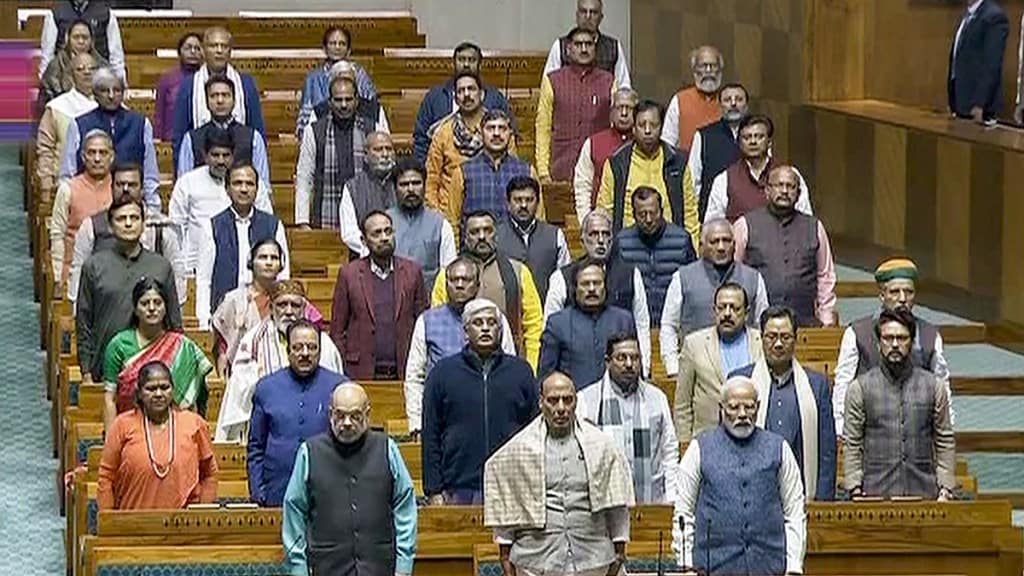The 17th Lok Sabha, concluding its term on Saturday, recorded the lowest number of sittings among full-term governments, data compiled by the think tank PRS Legislative Research revealed.
Over its five-year tenure from 2019 to 2024, the 17th Lok Sabha convened for a total of 272 sittings.
The 16th Lok Sabha held 331 sittings, while the 15th and 14th Lok Sabha, under the leadership of Manmohan Singh in the UPA government, had 332 and 356 sittings, respectively. Preceding them, the 13th Lok Sabha conducted 356 sittings, the PRS data showed.
The inaugural Lok Sabha, from 1952 to 1957, set the record for the highest number of sittings with 677 sessions. The second and third Lok Sabhas followed closely with 581 and 578 sittings, respectively.
The fourth Lok Sabha, dissolved a year ahead of schedule, managed 469 sittings, while the fifth Lok Sabha completed its full tenure with 613 sittings.
Under the Janata Party alliance, the sixth Lok Sabha, in office from March 1977 to August 1979, saw 267 sittings.
Conversely, the 12th Lok Sabha held the fewest sittings, only 88, before the Atal Bihari Vajpayee government fell after thirteen months.
Lok Sabha adjourned sine die
The 17th Lok Sabha adjourned sine die on Saturday, marking the conclusion of a term that saw several significant decisions, with Prime Minister Narendra Modi asserting that transformative reforms implemented during its five-year tenure laid the groundwork for a stronger India.
As Parliament adjourned indefinitely, signaling the onset of the countdown to the upcoming 2024 Lok Sabha elections, Modi remarked that the past five years were characterized by a period of “reform, perform, and transform,” with the nation rapidly progressing towards substantial changes. The Lok Sabha elections scheduled in April-May.
Reflecting on the tenure of the 17th Lok Sabha, which witnessed notable achievements, unprecedented security breaches, and the record suspension of 100 MPs for disorderly conduct, Modi praised the outgoing House. He highlighted key decisions made during its tenure, including the repeal of Article 370 of the Constitution and the passage of the Women’s Reservation Bill. The scrapping of Article 370, granting special status to Jammu and Kashmir, and the construction of the Ram temple in Ayodhya were long-standing goals of the BJP.
On the final day of the Parliament’s Budget session, discussions in both houses centred on the consecration ceremony of the Ram temple, scheduled for January 22.
Modi also noted that the 17th Lok Sabha achieved a productivity rate of 97%. “As we approach the conclusion of the 17th Lok Sabha, we resolve to ensure 100% productivity in the 18th Lok Sabha,” he stated.
With 353 MPs, the BJP-led National Democratic Alliance (NDA) commands a significant majority in the lower house.


